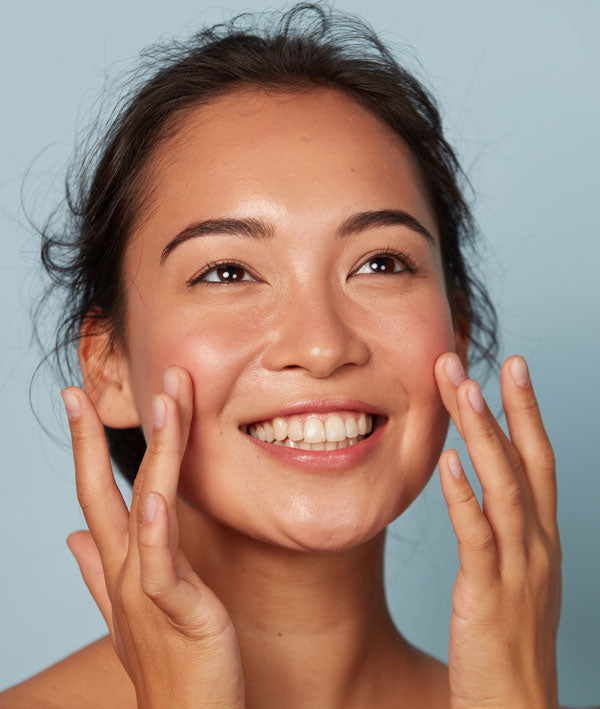The skincare industry is set to see exciting shifts in 2025, with trends leaning toward a mix of high-tech innovations, clean formulations, and age-old skincare wisdom. As people become increasingly discerning about what they put on their skin, brands are innovating to meet these demands. Here’s a breakdown of the most promising skincare and beauty trends that are shaping the year ahead.
Korean Skincare Influence
Korean skincare continues to be a powerhouse in the global beauty market, influencing products and routines worldwide. In 2025, this trend is evolving beyond just the traditional multi-step skincare regimen to include innovative new products, textures, and applications. The focus is shifting towards “skinimalism”—a simplified skincare routine that maximizes effectiveness with fewer products, inspired by Korean beauty philosophies.
Expect to see K-beauty innovations like jelly masks, fermented ingredients, and probiotic-rich creams. Fermented ingredients, such as rice water and fermented ginseng, are rich in antioxidants and offer intense hydration, supporting a glowing, resilient skin barrier. Korean skincare brands are also pushing the boundaries of eco-friendly packaging with refillable options and sustainable materials.
In addition, we’re likely to see more products targeting the ‘glass skin’ trend, which involves creating a clear, dewy, and even complexion through intense hydration and gentle exfoliation. Korean brands are pioneering formulations that achieve this effect without overwhelming sensitive skin, aligning with the global desire for simple yet effective skincare.
Organic & Clean Ingredients
As consumers become increasingly educated about ingredient safety, the demand for organic and clean beauty products is surging. In 2025, clean beauty is expected to dominate, with brands making significant strides in creating non-toxic, organic, and environmentally friendly products.
Ingredients like plant-based retinols (bakuchiol), algae, and cold-pressed oils are gaining popularity for their gentle yet effective anti-aging benefits. Organic ingredients that prioritize purity and efficacy are preferred over synthetic chemicals, especially as people grow more cautious of potential irritants and harsh compounds. Notably, brands are responding with transparent labeling, allowing consumers to understand the origins and benefits of each ingredient.
This trend is also influencing formulations in the anti-aging category. Consumers are gravitating toward natural collagen-boosting ingredients and barrier-friendly elements like ceramides and fatty acids. Even within clean beauty, there is a push toward “microbiome-friendly” products, which support the skin’s natural flora, contributing to a balanced, healthy complexion. As a result, organic, clean beauty products are not only becoming safer but also more scientifically sophisticated.
Personalized Skincare With AI
In an age of data-driven solutions, skincare personalization is at the forefront of beauty innovation. AI-powered skincare apps and devices allow users to assess their skin’s unique needs and get tailored product recommendations, making personalization more accessible than ever. In 2025, personalized skincare is expected to go mainstream, fueled by rapid advancements in technology and consumer demand for highly customized solutions.
AI-driven skincare tools can analyze skin hydration, tone, texture, and even detect early signs of aging. Many brands are already introducing smartphone applications and smart mirrors that provide real-time analysis, enabling customers to track their skin's progress over time. This kind of AI integration allows consumers to create a highly tailored skincare regimen, which can improve efficacy and minimize the risk of irritation from incompatible products.
Furthermore, brands are increasingly adopting DNA testing and lifestyle-based analysis to create hyper-personalized skincare products. By examining a person's genetic predisposition to factors like collagen breakdown and sensitivity, brands can offer products that cater to individual needs. This trend is also seeing an overlap with refillable skincare systems, where users can continually update their formulations based on their changing skin concerns.
Preventative Skincare
Gone are the days when people turned to skincare only after signs of aging appeared. In 2025, preventative skincare is emerging as a major focus, especially for younger generations looking to maintain their skin health over time. Preventative skincare goes beyond just wrinkle prevention, encompassing a holistic approach to health, wellness, and skin resilience.
Key products in this category include broad-spectrum SPF, antioxidants, and barrier-strengthening creams. Many are turning to antioxidant serums rich in vitamins C and E, which protect against free radicals and environmental stressors that accelerate aging. Sunscreen, once an often-overlooked step, is becoming non-negotiable, with many products now including blue-light protection for those concerned with screen exposure.
Furthermore, hydration-focused treatments, such as hyaluronic acid serums, are popular in preventative skincare for their role in maintaining the skin’s elasticity and youthful appearance. Preventative skincare aligns with the growing trend of self-care, where the aim is not just to treat visible skin issues but to nourish and protect the skin from potential future damage. This trend is expected to resonate with individuals of all ages, especially as awareness about long-term skin health becomes more prevalent.
Getting Back To Basics
Amidst all the innovations, there’s a contrasting trend in 2025: getting back to skincare basics. Consumers are realizing that a complicated regimen doesn’t necessarily equate to better skin, leading many to adopt a simplified approach focused on high-quality, multi-functional products. This “back-to-basics” movement is a response to both skincare fatigue and a desire for greater clarity in product choices.
Products in this category often include gentle cleansers, nourishing moisturizers, and versatile serums that can replace multiple steps in a traditional routine. Essential skincare ingredients like niacinamide, ceramides, and peptides are being celebrated for their versatility and effectiveness. As consumers seek reliable products, many are gravitating toward minimal ingredient lists, free of potential irritants and allergens.
This trend is also about embracing skin’s natural state rather than striving for unrealistic perfection. Brands are promoting skin-positivity, encouraging consumers to appreciate their unique skin textures and tones. Simple, effective products are emphasized, with fewer active ingredients to prevent overstimulation.
By focusing on basics, consumers are learning to listen to their skin, adjust their routine as needed, and avoid product overuse. The trend aligns perfectly with a broader societal shift toward mindfulness and sustainable consumption, encouraging users to find satisfaction in quality over quantity.
Final Thoughts
The skincare and beauty trends of 2025 reflect a more mindful, sustainable, and scientifically advanced approach to skincare. With a blend of Korean-inspired routines, organic ingredients, personalized tech, preventative care, and simple, effective products, the industry is responding to consumers' desire for a balance between innovation and authenticity. For those passionate about skincare, these trends signal an exciting time to refine their routines, prioritize skin health, and invest in products that align with their values.
Small Batch Serums and other forward-thinking brands are well-positioned to lead this new wave, offering products that embrace both high performance and ingredient integrity. As the year unfolds, it will be fascinating to see how these trends evolve and inspire consumers to embrace skincare in new, meaningful ways.






